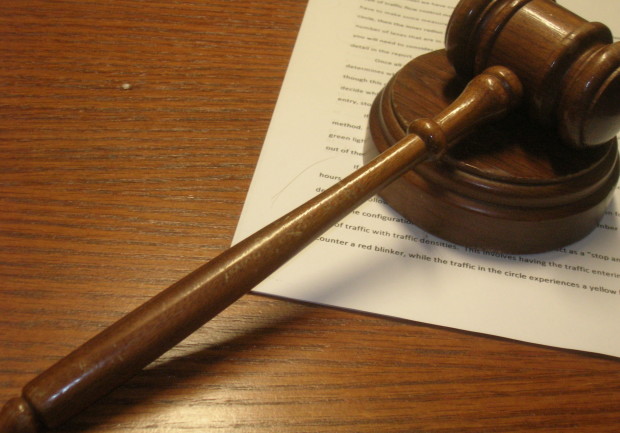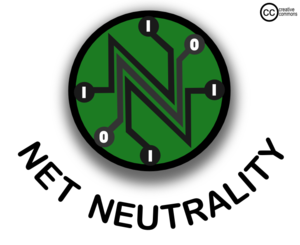 The ongoing, albeit recently quiet, battle over the Open Internet Rules that the FCC passed earlier this year has been heating up again as we approach the oral arguments in the lawsuits filed against the FCC by the telecom companies claiming, mostly, that the FCC did not have the power to reclassify broadband services under the Title II heading – no matter how light of a touch was used. The arguments will be heard this Friday, 12/4, in the same Appellate Court that struck down their attempt at achieving Net Neutrality in 2014. In fact, one of the judges that will be hearing this case, Judge David Tatel, is thought to be the likely of the three judges that will sway the decision one way or the other.
The ongoing, albeit recently quiet, battle over the Open Internet Rules that the FCC passed earlier this year has been heating up again as we approach the oral arguments in the lawsuits filed against the FCC by the telecom companies claiming, mostly, that the FCC did not have the power to reclassify broadband services under the Title II heading – no matter how light of a touch was used. The arguments will be heard this Friday, 12/4, in the same Appellate Court that struck down their attempt at achieving Net Neutrality in 2014. In fact, one of the judges that will be hearing this case, Judge David Tatel, is thought to be the likely of the three judges that will sway the decision one way or the other.
This decision holds a lot in the balance because the judges’ decision could range from full acceptance to partial acceptance with conditions that must be accounted for to, again, forcing the FCC to start all over in order to make certain that the law is followed to enact any kind of policy change. If the worst, as those in favor of the Rules see it, happens, it seems unlikely that we’ll see the kind of speedy response from the FCC that we got after the previous ruling. If, however, the lawsuits are struck down then we are almost certain to see an appeal and we could end up heading for the Supreme Court where the decision will be made as to whether the FCC has the power to oversee broadband communications at all.
While this is happening, though, there has also been movement in Congress on two fronts. First, we saw recent information that certain Republicans in the House of Representatives are attempting to insert language into an appropriations bill that will allow the Internet Service Providers (ISPs) to ignore the FCC’s Rules until after the court decision is finalized. This follows right in line with the previous attempts made in Congress to change the power that the FCC has to oversee broadband communications.
Second, the House of Representatives passed H.R. 2583 which amended the Communications Act of 1934 to provide greater transparency and efficiency in the procedures of the FCC. The bill calls for a great deal more information to be shared with Congress and the public in general as to what issues are on the agenda of the FCC, where they are in the process of being handled, and addressing whether or not they have been addressed at all.
It could easily be argued that portions of this bill are written specifically because of how the Open Internet Rules public commentary period was handled, followed by the introduction of the Rules themselves. In Sec 13 (a) (3) (D) it states that the FCC “shall seek public comment on whether and how the Commission should establish procedures for publish the text of agenda items to be vote on at an open meeting in advance of such meting so that the public has the opportunity to read the text before a vote is taken,” no later than 1 year after this (The Federal Communications Commission Process Reform Act of 2015) is enacted.
 One of the biggest complaints about the way the Rules were handled in January and February, particularly from some of the Commissions own members, was the fact that they were not made public prior to being voted on by the Commissioners. Even after the Rules were approved by a 3-2 margin they text of the document was still not made public as amendments were being made. No one beyond the Commission knows what changed from the original 317 page document to the 313 page one that was released. This bill would help to address that and bring greater transparency to those that will be affected by the rules and regulations being set forth. It could be a double edged sword in that the more that those against potential changes being proposed see happening, the more propaganda and political maneuvering we are likely to see in order to sway or prevent any alterations from happening.
One of the biggest complaints about the way the Rules were handled in January and February, particularly from some of the Commissions own members, was the fact that they were not made public prior to being voted on by the Commissioners. Even after the Rules were approved by a 3-2 margin they text of the document was still not made public as amendments were being made. No one beyond the Commission knows what changed from the original 317 page document to the 313 page one that was released. This bill would help to address that and bring greater transparency to those that will be affected by the rules and regulations being set forth. It could be a double edged sword in that the more that those against potential changes being proposed see happening, the more propaganda and political maneuvering we are likely to see in order to sway or prevent any alterations from happening.
Friday is going to be a very interesting and important day as we look to the future of communications, entertainment, and seemingly just about every other thing we do on a daily basis. Keep track of the progress here as the story unfolds and let’s all hope for the best – not just for the businesses or the public but for everyone involved.
For the complete Net Neutrality story from January 2014 to present, view all my coverage here.




Pingback: Net Neutrality Posts | Sound ReasonSound Reason